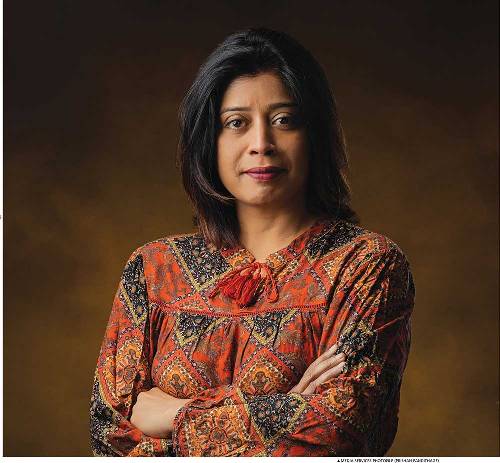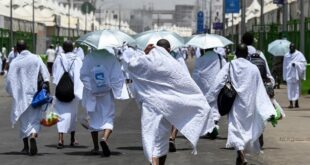Earlier in January thousands of Egyptians took to the streets of Cairo and camped out in Tahrir Square for 18 days. They demanded the ouster of their president, Hosni Mubarak. Although the protests began peacefully, the streets of Cairo saw clashes between protestors and security forces. According to an article in the BBC last July, an estimated 846 people died during those 18 days and 6,000 were injured.
On Feb.11 Mubarak resigned from his post, ending his 30 year reign.Thousands celebrated their accomplishment after that day. However the road ahead of Egypt was not without its problems. In fact nine months later some activists are saying not much has changed in Egypt after the revolution.
 Human rights violations, mismanagement of the transitional period, fragmentation of political forces, are some of the main features of politics in Egypt after its revolution, some Egyptian activists said.
Human rights violations, mismanagement of the transitional period, fragmentation of political forces, are some of the main features of politics in Egypt after its revolution, some Egyptian activists said.
“The army is mismanaging the transition stage and wasting precious time,” said Said Sadek, a Political Sociology professor in the American University in Cairo, “Army generals want to secure their rights and interests in the future Egypt.”
Immediately after ousting Mubarak, on Feb. 11, the Supreme Council of Armed Forces (SCAF) declared it adopted protesters’ demands and it would hand over the power after six months to a democratically elected president.
However the current ruling council was reluctant in answering protesters’ demands, so demonstrators thronged, almost every Friday, in Tahrir square reminding, at first, the SCAF of its promises, and eventually urging it to step down.
On Sunday Oct. 9, armoured vehicles sped into a crowd of protesters, mostly Coptic Christians, to crack down on protests near Cairo’s state television. At least 25 people were killed, according to Reuters. Online videos showed vehicles hitting protesters and mashing them.
This was the worst violence seen since ousting Mubarak and it infuriated Egypt’s Coptic Christians. It also fostered public’s doubt of military’s ability to steer the country peacefully towards democracy.
According to a report by Human Rights Watch last September the military council tried until now up to 12,000 civilians in military tribunals. Their sentences varied from months to years.
“The old regime is still controlling the state,” said Mahmoud Abdelreheem, a political activist and freelance journalist,“The military council is composed of Mubarak’s men who do not want a radical change.”
Abdelreheem lamented also on the freedom of media saying “media is still pursuing the same old regime’s doctrine, official media is controlled by the junta and private media is owned by Mubarak’s loyalists.”
Although political forces have become more active since ousting Mubarak, they are rather fragmented, said Ashraf Rady, a political analyst and activist.
“The revolution did not lead to a substantial change in the political landscape,” Rady said, “The political forces are still divided into four main political camps, the national, the Islamic, the socialist, and the liberal, but new forces emerged in the last three camps.”
He added “Salafist [hardline Islamist] became more powerful in the Islamic camp…the Coptic began political mobilization by declaring their support for the liberal parties bloc.”
Rady also said that the Muslim Brotherhood Group have gone through furious conflicts in its pursuit of a central role in the new political system. They wanted to assure their political domination but it suffered from dwindling support after the emergence of new forces within the Islamic political camp.
“The fragmentation of political camps, the conflict between them and their pursuit to seize political clout may lead political life to slip into a degree of instability.”Rady
Sadek, who sent his comments by email as well as the other activists, early in October , said if the army generals, Islamists, secularists and liberal Coptics reached a deal, “there will be a democracy.”If not, chaos will prevail for some time before one force takes over,”he added.
Months after the world saw them joyously hoisting their red, black and white flag in the air, Egyptians are still working to achieve democracy and stability in their country.
“It is very hard to forecast the future of political life in Egypt because of the lack of transparency,”said Abdelreheem , “ Indicators do not point out to a real democratic change and the socio-economic base of the population may not change soon which may lead to a deep disappointment.”
read original: http://jhrconcordia.com/2011/10/25/activists-no-change-in-post-revolution-egypt-jhrc-feature/
Post Disclaimer | Support Us
Support Us
The sailanmuslim.com web site entirely supported by individual donors and well wishers. If you regularly visit this site and wish to show your appreciation, or if you wish to see further development of sailanmuslim.com, please donate us
IMPORTANT : All content hosted on sailanmuslim.com is solely for non-commercial purposes and with the permission of original copyright holders. Any other use of the hosted content, such as for financial gain, requires express approval from the copyright owners.
 Sri lanka Muslims Web Portal Sri Lanka Muslims News Center
Sri lanka Muslims Web Portal Sri Lanka Muslims News Center



